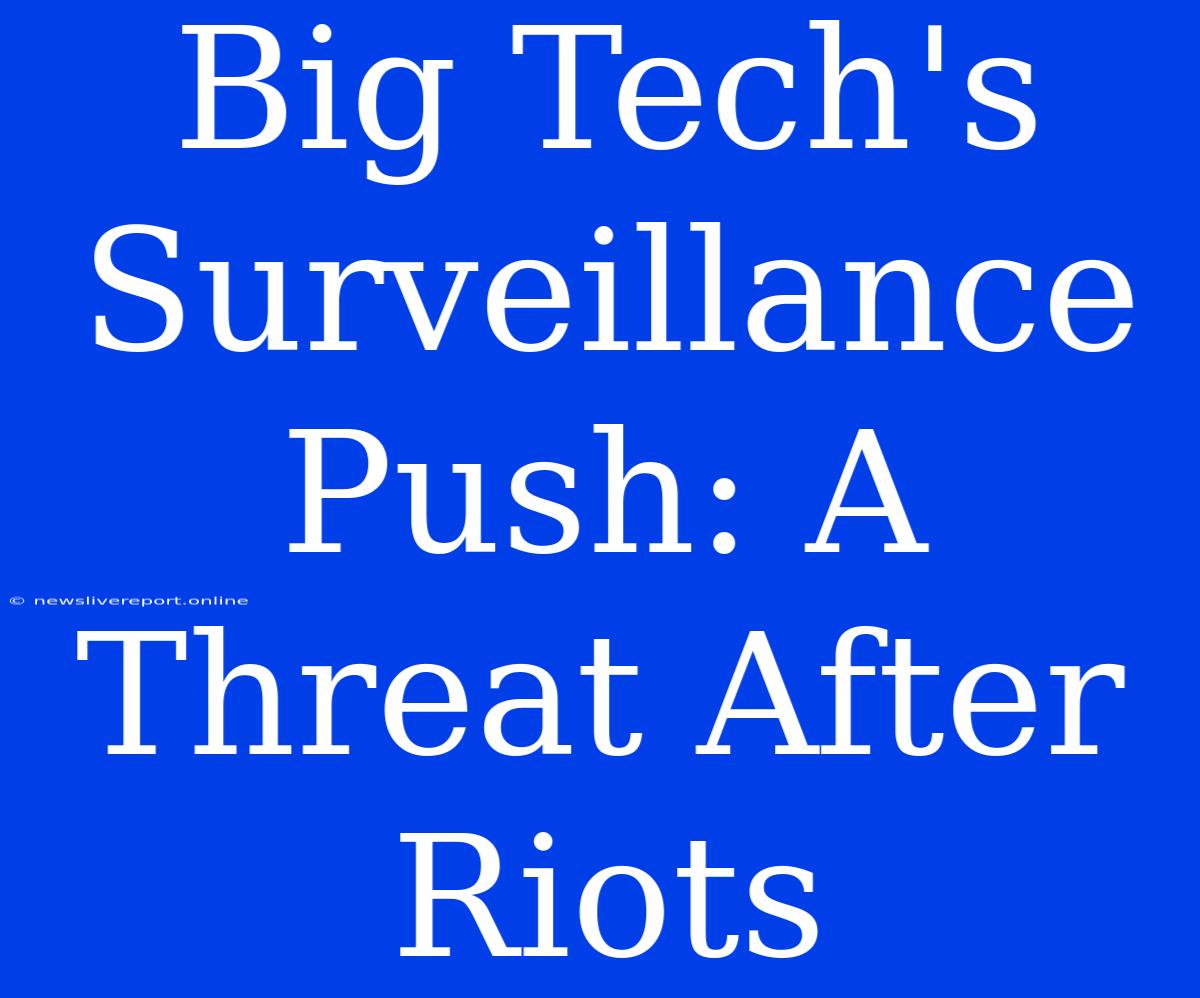Big Tech's Surveillance Push: A Threat After Riots?
The recent riots have sparked a heated debate about the role of technology in public safety. Amidst the chaos and calls for order, Big Tech companies have stepped forward, offering their surveillance tools as a solution. But is this a step towards a safer society, or a slippery slope towards increased government surveillance and erosion of privacy?
The Promises:
- Enhanced Security: Big Tech companies tout their advanced AI-powered facial recognition and predictive analytics as powerful tools to identify potential threats and deter future violence.
- Real-Time Monitoring: Their surveillance systems promise real-time monitoring of public spaces, enabling authorities to quickly respond to incidents and maintain order.
- Improved Evidence Gathering: The data collected by these systems can be used to identify perpetrators, build stronger cases, and bring justice to those affected by the riots.
The Concerns:
- Privacy Violations: These surveillance systems collect vast amounts of personal data, raising serious concerns about privacy violations and potential misuse.
- Discrimination and Bias: Facial recognition algorithms have been proven to be biased against people of color, leading to potential wrongful arrests and disproportionate targeting.
- Chilling Effect on Free Speech: The threat of surveillance can discourage people from expressing dissenting opinions or engaging in legitimate protest activities.
- Erosion of Trust: The increased use of surveillance technology can erode public trust in law enforcement and create a climate of fear and suspicion.
The Balancing Act:
It's crucial to acknowledge the legitimate concerns about public safety and the need for effective law enforcement. However, blindly embracing Big Tech's surveillance solutions without addressing the inherent risks is a dangerous path. We must find a balance between security and privacy, ensuring that our technological solutions do not come at the expense of fundamental human rights.
What can we do?
- Demand Transparency: We need to demand transparency from both Big Tech companies and government agencies regarding the use and limitations of surveillance technologies.
- Independent Oversight: Establishing independent oversight bodies to monitor the use of these technologies and ensure their ethical and responsible deployment is crucial.
- Data Protection and Privacy: Strong data protection laws and regulations are essential to safeguarding our personal information and preventing its misuse.
- Ethical Development and Implementation: We need to prioritize the development and deployment of surveillance technologies that are ethically sound and minimize the potential for bias and discrimination.
The future of public safety is intertwined with the responsible use of technology. We must ensure that our pursuit of security does not come at the cost of our fundamental freedoms. The time is now for a serious and thoughtful conversation about the role of surveillance in a free and democratic society.

